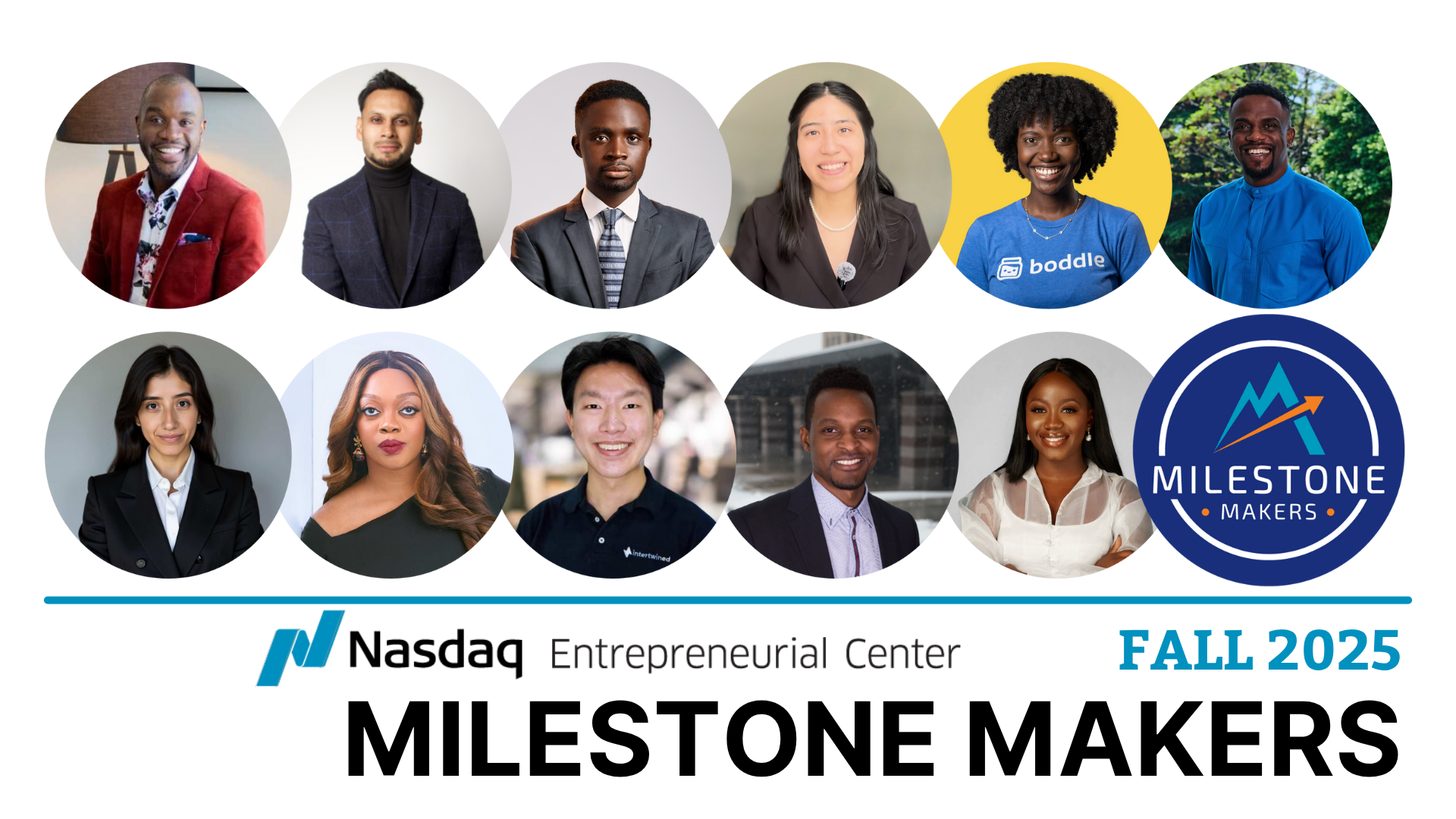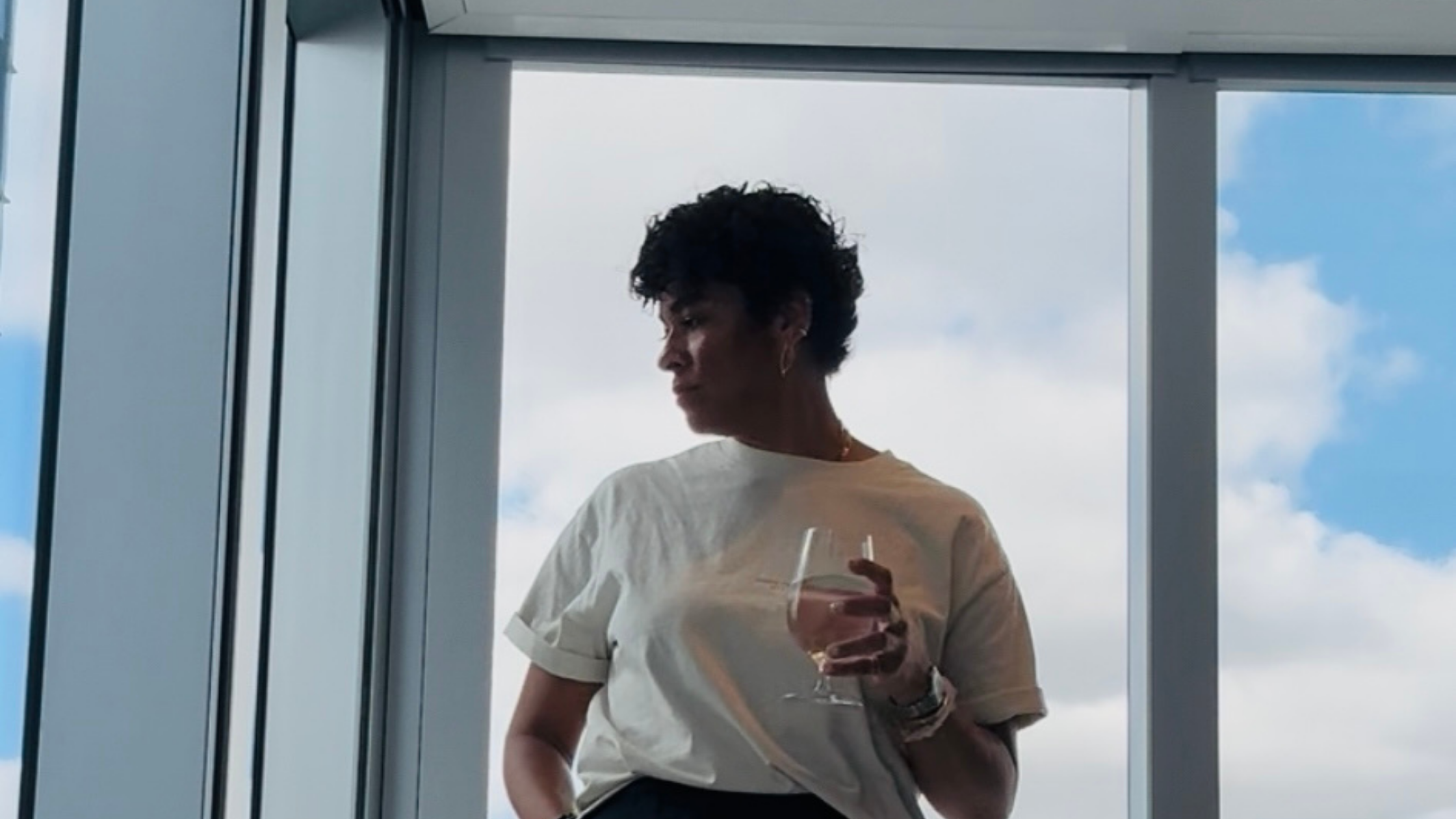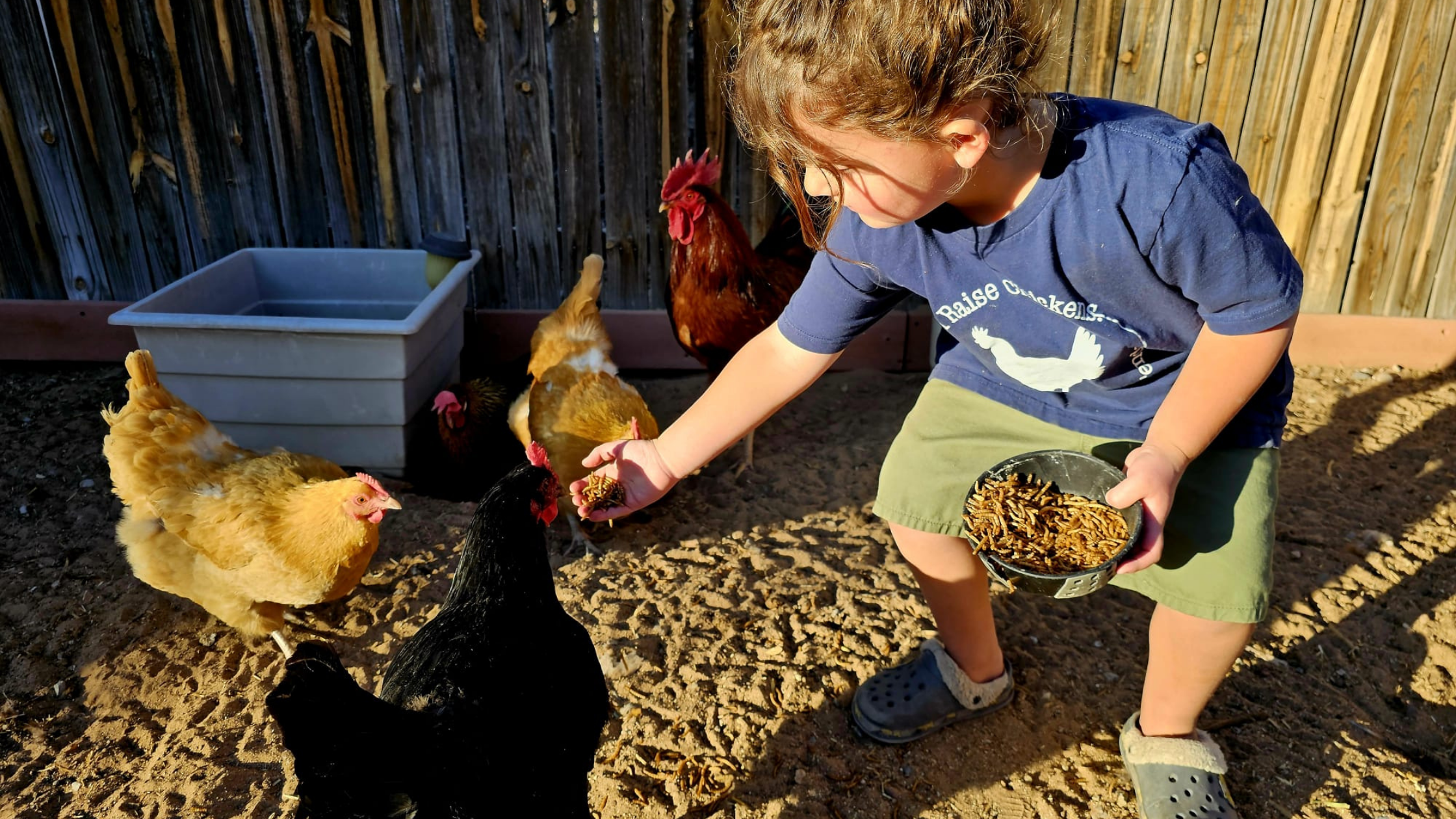Both Eugenia Cubeddu and Delia Nuñez were born in Venezuela – Eugenia is from Caracas and Delia is from a smaller city called Valencia. By a quirk of fate, they ended up as roommates the year they both moved to New York City. One day, while complaining how time consuming it is to make their beloved arepas in the morning before going to work, Pepià Arepas was born. Just corn meal, water and salt, Pepià Arepas are purely baked, gluten-free, nutritional corn meal “pockets” that are frozen and sold in supermarkets in the NYC area.
What does “entrepreneurship” mean to you?
PA: Entrepreneurship is a way of sharing with NY, and the rest of the world, a little piece of ourselves, our culture, and of course, our delicious food. We know entrepreneurship can be overwhelming but it is a risk that is absolutely worth taking. Our aim is to combine our passions and talents to create an accessible product that will become a staple in many households.
 How did your company come to be?
How did your company come to be?
PA: Pepià as an idea was born in 2018 in a cool summer night on Delia’s backyard. We were both talking about how much we love Venezuelan food and how much it was growing within the restaurant scene in NYC. However, we also realized we couldn’t find anything that resembled the typical arepa we grew up eating in any supermarket, so we decided it was time to do something about it.
We hadn’t (and we still have not) met anyone who did not like arepas after trying them, and we knew this was a unique opportunity to create a product that others were interested in having in the comfort of their homes. We wanted to make something that was considered ‘exotic’ and difficult to prepare, and transform into simple and convenient for New Yorkers on the go.
How has your business changed in response to the COVID-19 pandemic?
PA: This pandemic was very eye opening for us. We realized we needed to redefine our digital strategy and position it as a key priority for us moving forward. Pre-COVID we were relying solely on demos as our key marketing tool, and having to face the challenge of selling food digitally quickly made us realize that we had to adapt and learn how to differentiate ourselves from the rest of the market. We shifted our focus to continue educating our customers and giving them simple ideas to incorporate this product as part of their daily routines through digital tools. This has been extremely important during this time as we gave continuity to that once face to face contact, but now through technology.
What is your proudest and darkest moment so far?
PA: Since we founded this company, we had two key moments that redefined who we are and where we want to go as a company.
Our darkest moment to date was finding out that there was another company in the US that recently launched a product similar to ours – and was also doing it quite well. At first, we were really shocked to find so many similarities including the packaging and format on how we sell our arepas.
This made us quickly realize that this won’t be the first or the last similar product that will be available in the market. It also helped us validate our concept to understand that there is demand for a product like ours.
A key high for our company was seeing our arepas on the shelves of a supermarket. We came with our idea in 2018 and had been working for months in setting up the company. This included perfecting our recipe and process, finding the right packaging, and multiple (many failed) tests with friends and family. Having a supermarket saying “Yes! We really like your product and would like to buy it” was such a fulfilling moment for us. It was validation that all the hard work had real demand.
How is your company changing the landscape?
PA: Even though the Latin food market has expanded drastically in the past several decades, we still feel like there is a lot of room for growth in this area. As arepa restaurants are becoming more and more popular in big cities around the US, we saw it as an opportunity to start our business focused around eating arepas and making them accessible to everyone. There isn’t something like this in stores today.
What do you wish you knew when you started? Is there anything you would do differently?
PA: We believe that everything happens for a reason and we take all events as a learning experience. We did learn, as mentioned previously, that we should have invested more time and resources on digital marketing when we officially launched (beginning of 2020). At that time, we relied heavily on in-person demos and word of mouth. While this was successful at the beginning, once the pandemic started, we realized we had to find another alternative for reaching new customers.
What advice/credo do you live by as you grow the business / what is your professional and personal mission statement?
PA: Our mission is to make traditional Venezuelan food a staple in your home, starting with the arepa. We want to unite communities at the table to create new traditions.
Where do you find inspiration when faced with challenges?
PA: We both come from Venezuela, a beautiful country that has been going through an extremely difficult political, economic, and humanitarian crisis for many years. If there is one thing we have learned from our family and friends who still reside there is to be resilient. Even in the most difficult conditions, Venezuelans are some of the hardest working people; constantly looking for humor in dark times, and remaining optimistic when everything else seems to be falling apart.
What does “success” look like for you? What do you think will help you achieve it?
PA: Success for us is knowing that we are part of a movement, of making something that didn’t really exist before and making it accessible to others. It is embedding our culture and traditions in the homes of many people who appreciate what the Latin community has to offer.
Has personal or professional “success” changed for you since the COVID-19 pandemic?
PA: The end goal of making our product accessible has not necessarily changed but the way to get there has shifted. We had to adjust our strategy to the current volatile environment, and re-think of ways to grow demand. However, with everything else going on in the past few months, we also learned about the true power of community and people working together towards a common goal. We want our company to be part of this change: get involved and give back to our community.
What’s it like to work alone or with your partners? What advice do you have for fellow entrepreneurs about building and leading teams?
PA: We think neither of us could have done this alone. From day one it has been really clear that there is not a unique path to starting and growing a business. Valuing the diversity of ideas and creativity has allowed us to be where we are today. If we had to give one advice in the success of our partnership it would be trust. From the very beginning we developed not only respect but full trust in every decision we have taken.
Many entrepreneurs continue to perfect their daily routines to support their work and greater vision; would you mind sharing your morning routine or a regular ritual that grounds your work each day? How has it changed in recent months?
Eugenia: I have always been a planner, so organizing my week is key to accomplishing the goals I have set for myself, short or long term. I usually start my day with a big cup of coffee, and lately I started doing the NYT crossword puzzle which makes me realize all the things I have to learn! After my coffee I am ready for my work-out. Exercise is such an important part of my life, it helps me think more clearly, and have more energy, some of the most important things we need to keep calm in midst of COVID (and life). I am currently training for a Triathlon, which will probably happen in 2021, but having a clear goal in mind helps me stay motivated. Lastly, my favorite part, food! Breakfast usually involves an arepa with avocado, eggs, and cheese, and of course more coffee to start my workday.
Delia: I am strong believer of lists. I am not as organized as Eugenia, but I do like having a clear list of things I want to accomplish in any given week – it helps me have an idea of what I need to do and what I should tackle first. I keep a list for everything – Pepià, my full-time job, and my personal life.
What keeps you motivated during this time?
PA: We always try to remind ourselves how rewarding it is every time we hear someone tell us how much they love our arepas. Even as a small business, we created a very loyal community. Seeing people happy about finding our product and getting pictures from strangers is the biggest motivation for us to keep pushing, keep expanding, and keep growing.
Supermarkets are also a great motivator – they were highly supportive and open to our concept from the very beginning. Greene-Hill Coop, for example, saw the value in our product and immediately decided to take us in. After that, we started to believe more in ourselves and gained the boost of confidence to go after more supermarkets in the NYC region.
What kind of an entrepreneur do you want to be known as, as in, what do you want your legacy to be?
PA: We want to be known as the women that made Latin food, specifically the less-known Latin foods like arepas, more accessible to everyone outside of the Latin community.
We want our resilience, professionalism, and perseverance through difficult times to identify us as a company.
What is a quote or some words of wisdom that help get you through the tough days?
PA: I think we both have experiences that have shaped us into the people we are today, and how we overcome difficult situations.
Eugenia: For me more than a specific quote is the attitude of not giving up when things get difficult. I am a (very amateur) marathon runner, and to me it is about having the discipline and the mental strength required to make sure you cross the finish line even if it pours throughout the entire race. To me, giving up is not an option!
Delia: I was raised by very optimistic parents who always thought that eventually things will always sort themselves out. During my formative years, my dad repeatedly said to me: “you are allowed to feel anything but fear.” I think that what he meant was “you can be stressed, you can be upset, you can feel overwhelmed, but it’s unnecessary to panic or be scared because eventually things will always be okay.” When we are having a tough moment or a tough day, I always try to go back to that mentality.
Do you have someone you’d like to nominate to be profiled in our Faces of Entrepreneurship series? Please let us know by emailing media@thecenter.nasdaq.org.




